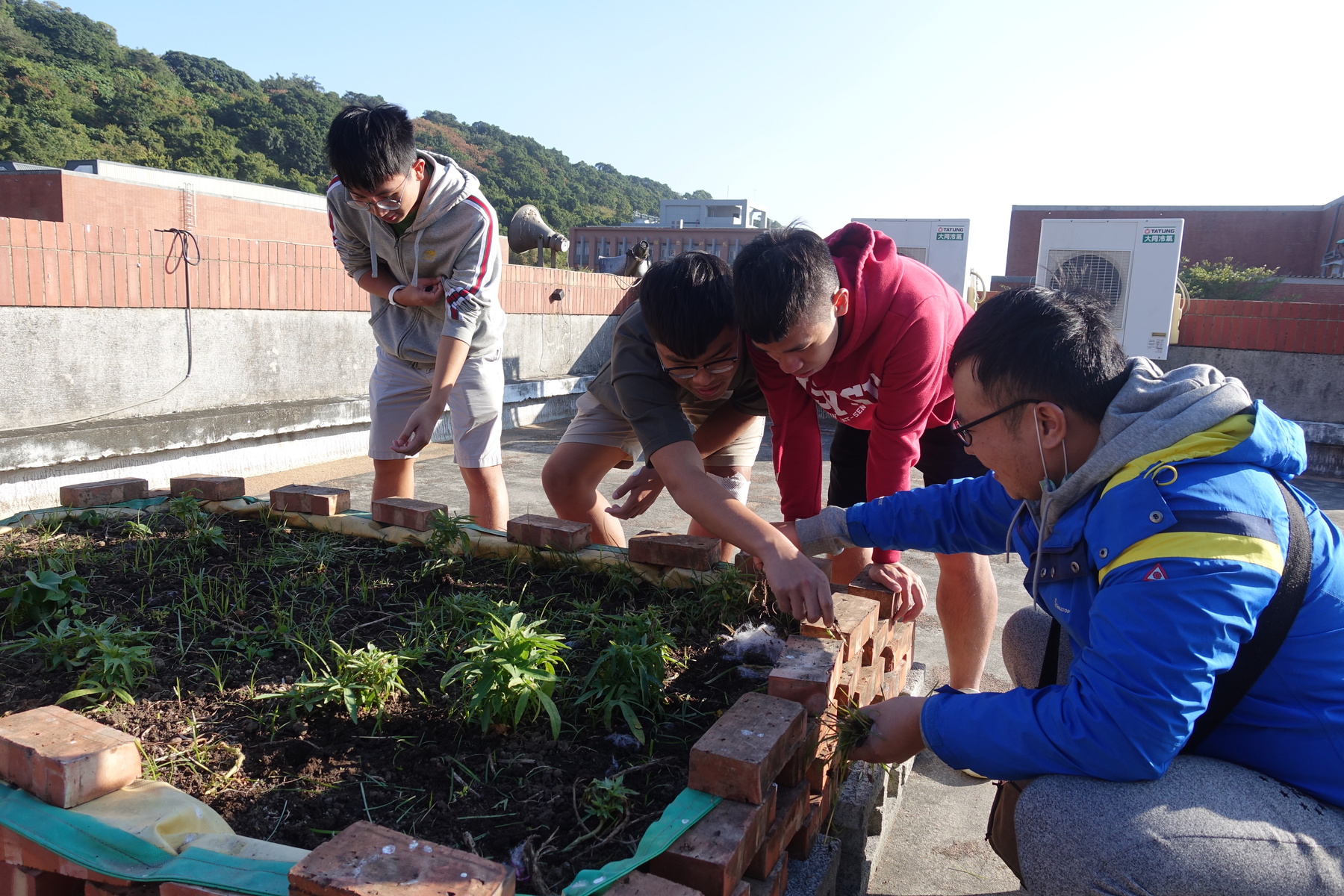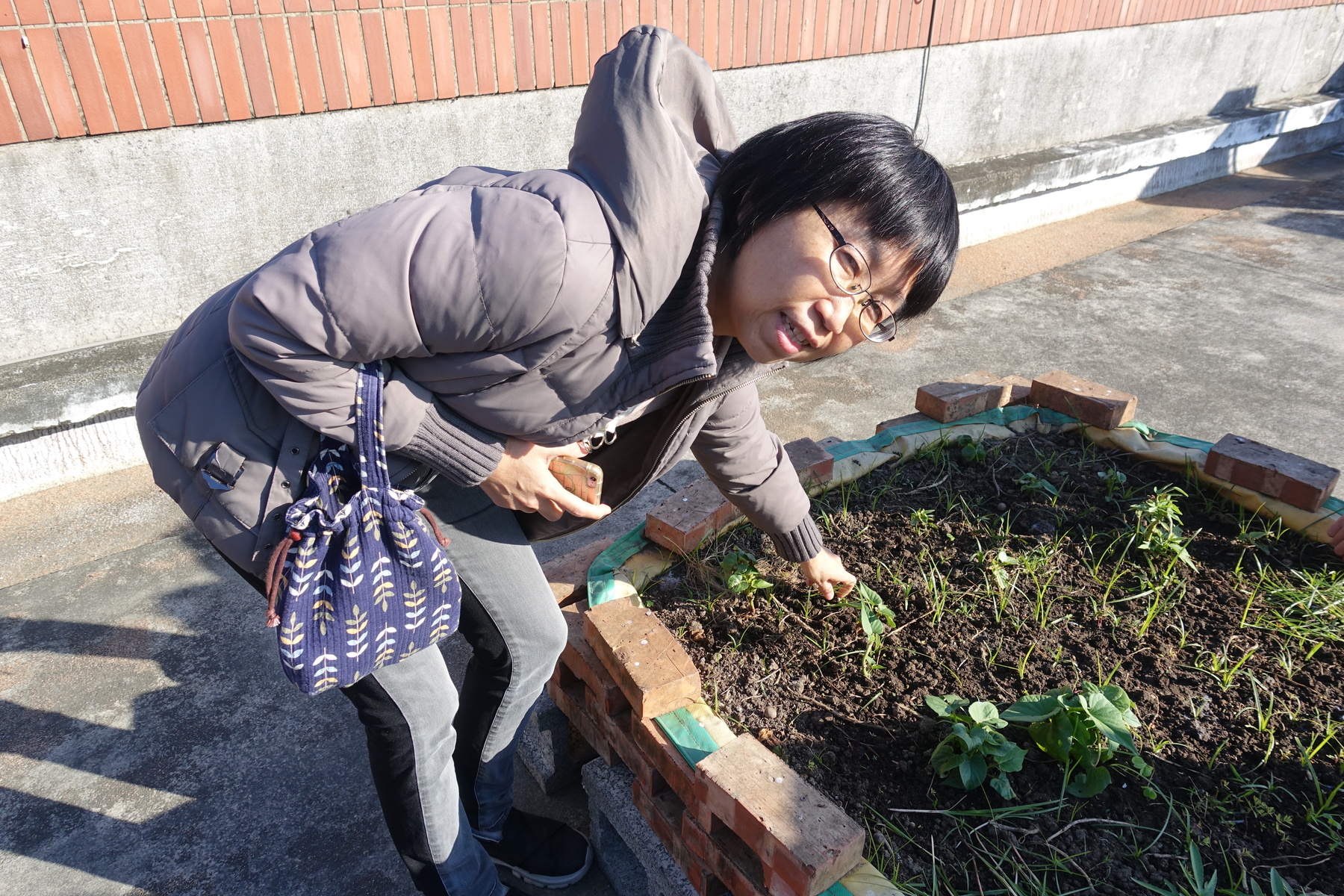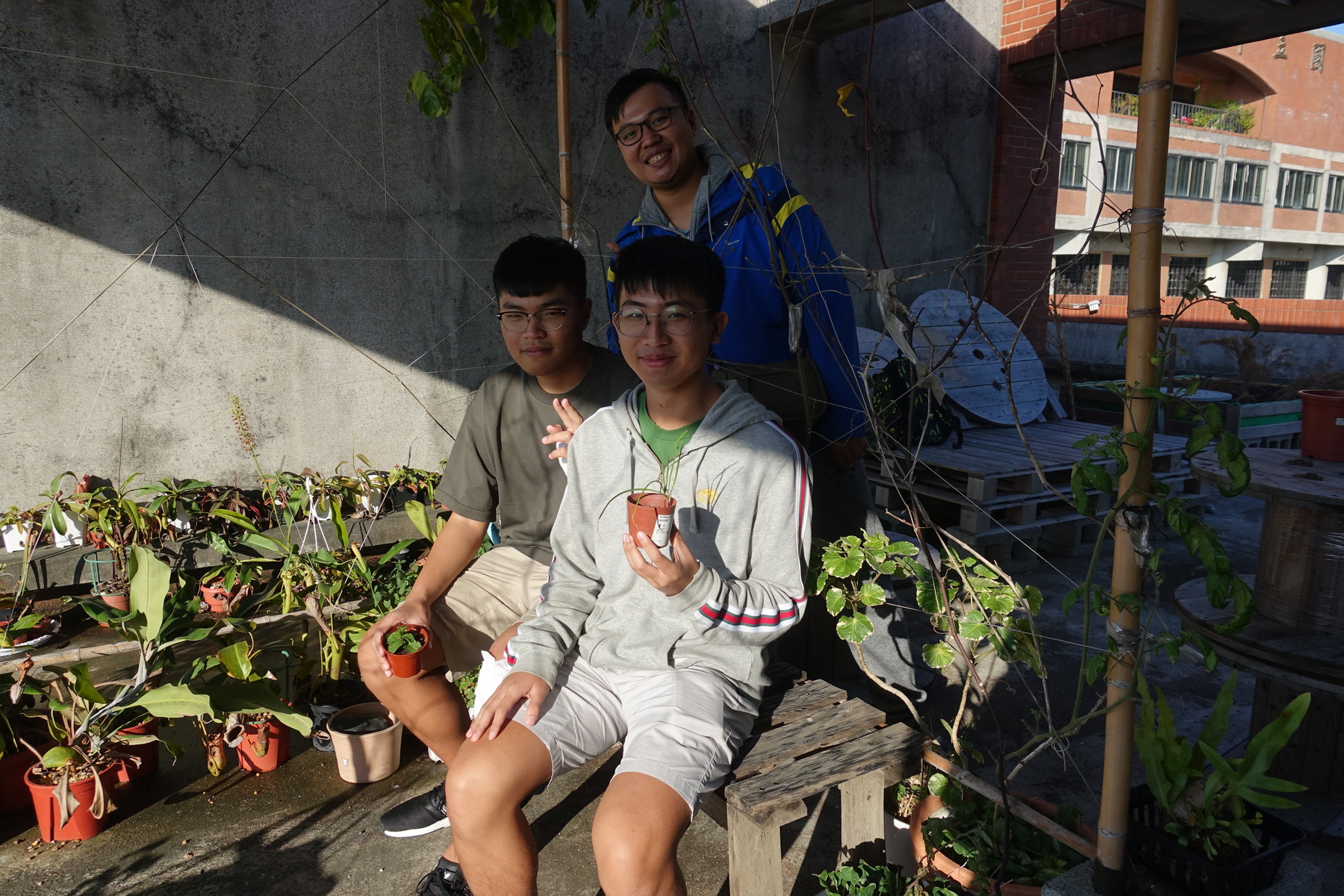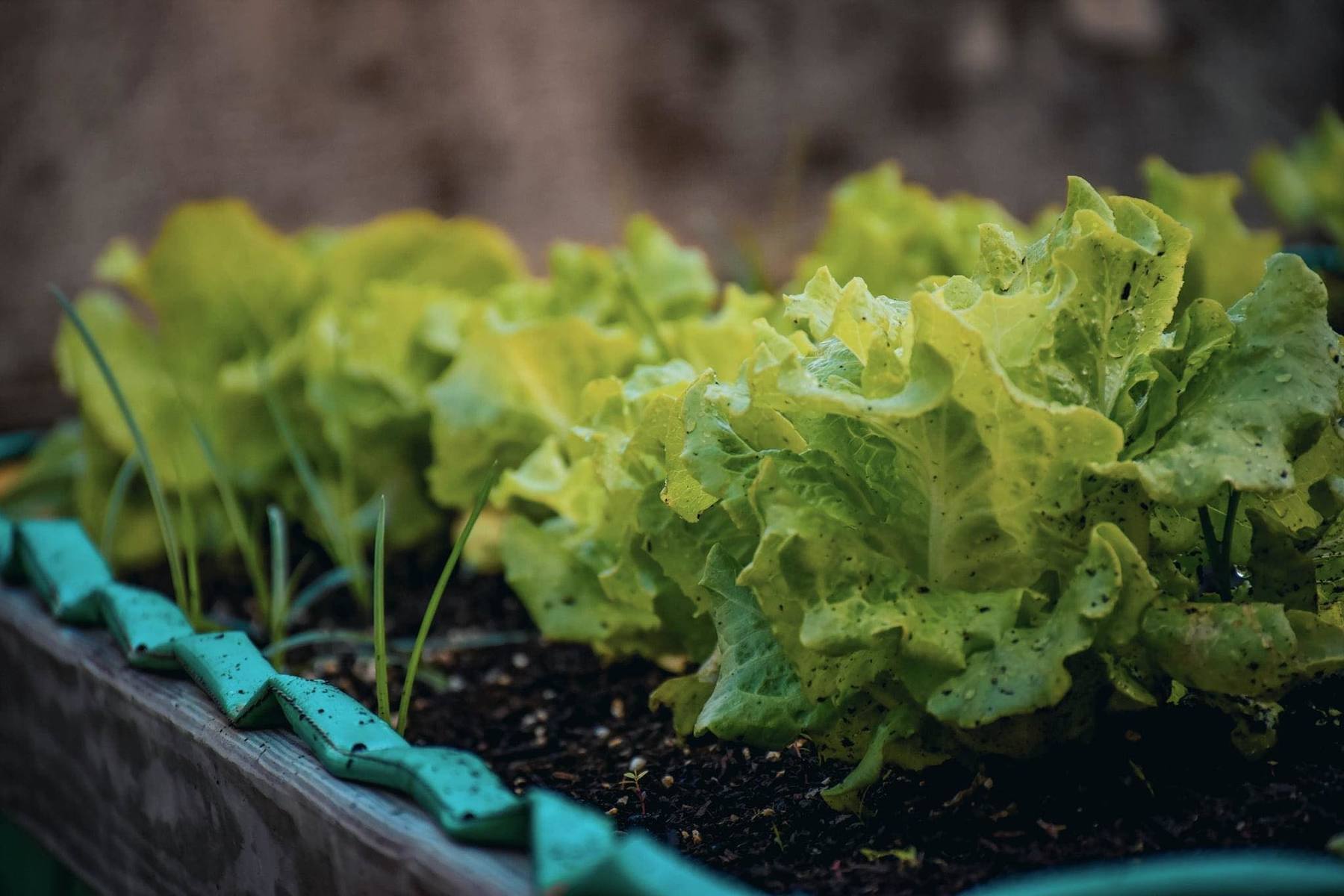Students keep organic vegetable garden on rooftop




2021-03-01
(Report by student journalist) Over the past 2 years, the students of the Food and Agriculture Society at NSYSU have been keeping a “toxic-free garden” on the rooftop of the building of the College of Social Sciences, planting organic vegetables, collecting and cooking them, with the aim to reduce their carbon footprint and save Earth’s resources.
The course instructor, Associate Professor of the Department of Sociology Hua-Mei Chiu said that the Society was founded by the students who took a series of courses on Sociology of Food and Agriculture. They have joined the action program to turn NSYSU campus into an environment for sustainable food and agriculture. The students turned the rooftop of the building of the College of Social Sciences into a garden, implementing the concepts of urban farming, edible landscape and green rooftop. The students are also encouraged to adopt an environmentally-friendly diet, reduce the distance between the farm and the kitchen table and making dormitories more self-sufficient in cooking. Going green in everyday life and reducing carbon emissions was a step students made towards environmental sustainability.
Professor Chiu also shared that it is very easy to go green: a used plastic bottle cut in half can become a pot for growing a spring onion. “As long as the students want to, we get down to it!”
One of the students of the Food and Agriculture Society Chih-Yang Tseng said that besides being a source of food, the garden is a great place for leisure. The vegetables grown are those less affected by plant diseases and insect pests, such as Chinese lettuce, sweet potato leaves and other vegetables. The garden is an aesthetic experience in itself, with a variety of vegetables – slim and tall like lemon grass or spring onion, and shorter ones, like Bermuda grass. There is also a shady place with a DIY pallet table and chairs for the students to take a rest.
Tseng said that the vegetables in the garden are not sprayed with pesticides and thus it is not easy to care for the garden. For example, in the past, when sweet potato leaves were destroyed by pest and had white spots on the surface of the leaves, the students of the team had to spray them with chili pepper water, which significantly improved the situation. From this experience, he learned some knowledge on how to prevent plant diseases and pest.
Student Yi-Sheng Lee shared that he finds the green rooftop magical attraction and he likes to do his homework there. He also invited his friends to chat on the rooftop. “It always gets me in a good mood!” Collecting a vegetable grown by oneself and sharing it with others always brings joy and sense of achievement from reducing the carbon emissions, he said.
(Edited by Public Affairs Division)
(Report by student journalist) Over the past 2 years, the students of the Food and Agriculture Society at NSYSU have been keeping a “toxic-free garden” on the rooftop of the building of the College of Social Sciences, planting organic vegetables, collecting and cooking them, with the aim to reduce their carbon footprint and save Earth’s resources.
The course instructor, Associate Professor of the Department of Sociology Hua-Mei Chiu said that the Society was founded by the students who took a series of courses on Sociology of Food and Agriculture. They have joined the action program to turn NSYSU campus into an environment for sustainable food and agriculture. The students turned the rooftop of the building of the College of Social Sciences into a garden, implementing the concepts of urban farming, edible landscape and green rooftop. The students are also encouraged to adopt an environmentally-friendly diet, reduce the distance between the farm and the kitchen table and making dormitories more self-sufficient in cooking. Going green in everyday life and reducing carbon emissions was a step students made towards environmental sustainability.
Professor Chiu also shared that it is very easy to go green: a used plastic bottle cut in half can become a pot for growing a spring onion. “As long as the students want to, we get down to it!”
One of the students of the Food and Agriculture Society Chih-Yang Tseng said that besides being a source of food, the garden is a great place for leisure. The vegetables grown are those less affected by plant diseases and insect pests, such as Chinese lettuce, sweet potato leaves and other vegetables. The garden is an aesthetic experience in itself, with a variety of vegetables – slim and tall like lemon grass or spring onion, and shorter ones, like Bermuda grass. There is also a shady place with a DIY pallet table and chairs for the students to take a rest.
Tseng said that the vegetables in the garden are not sprayed with pesticides and thus it is not easy to care for the garden. For example, in the past, when sweet potato leaves were destroyed by pest and had white spots on the surface of the leaves, the students of the team had to spray them with chili pepper water, which significantly improved the situation. From this experience, he learned some knowledge on how to prevent plant diseases and pest.
Student Yi-Sheng Lee shared that he finds the green rooftop magical attraction and he likes to do his homework there. He also invited his friends to chat on the rooftop. “It always gets me in a good mood!” Collecting a vegetable grown by oneself and sharing it with others always brings joy and sense of achievement from reducing the carbon emissions, he said.
(Edited by Public Affairs Division)
Click Num:
Share
